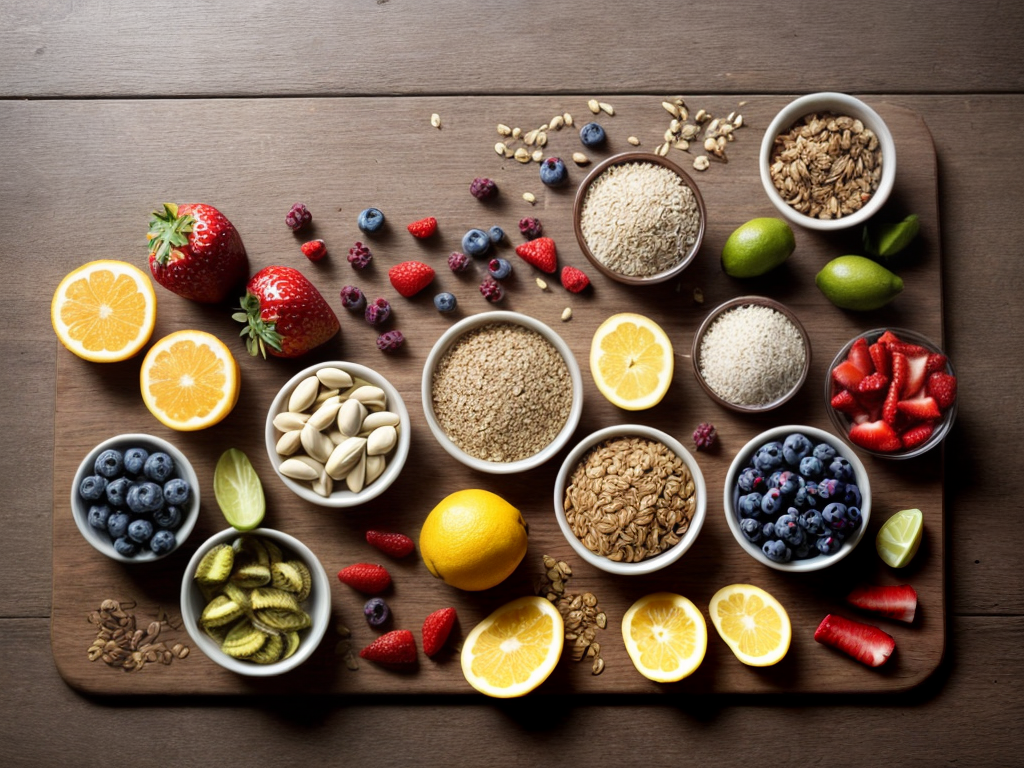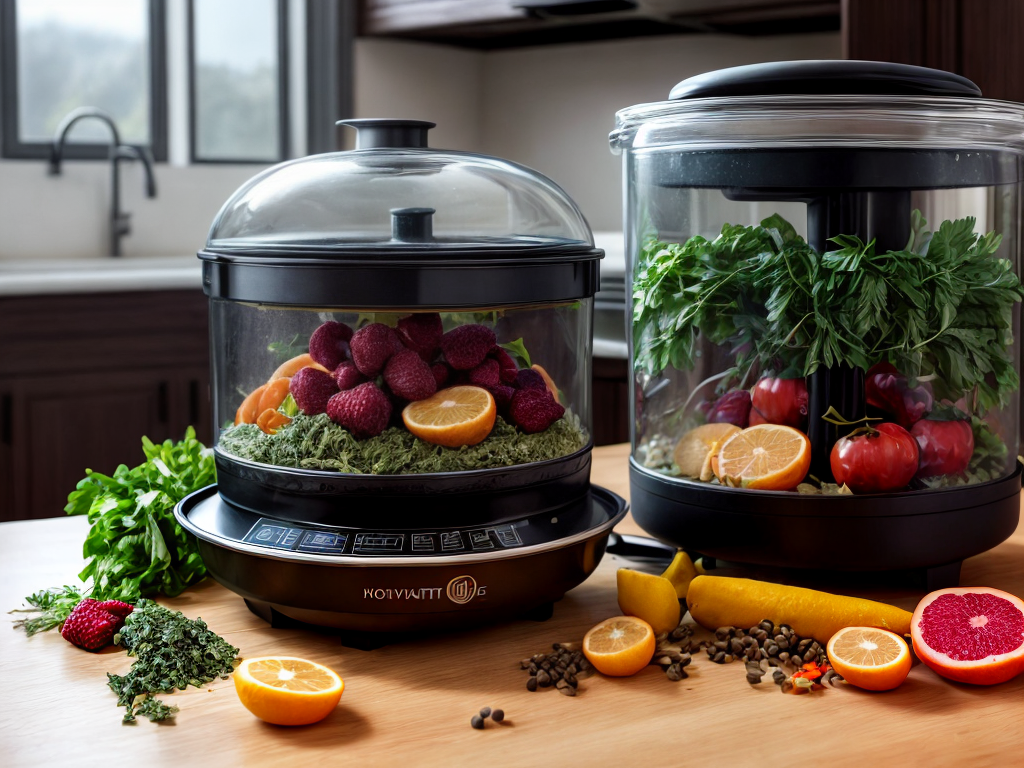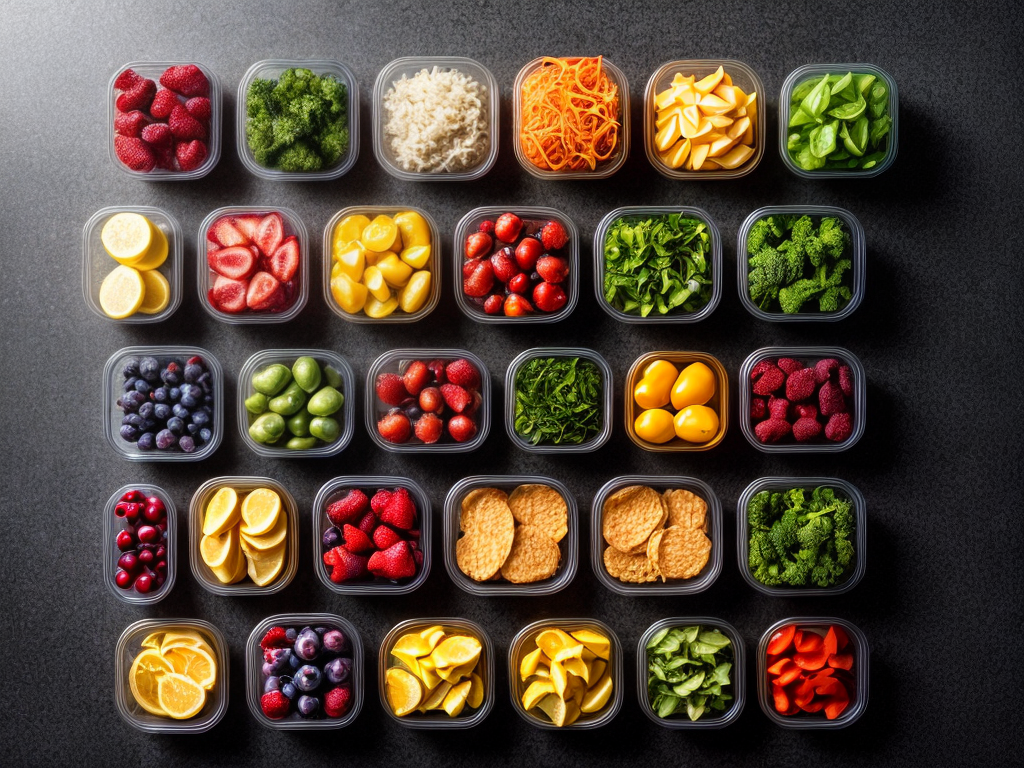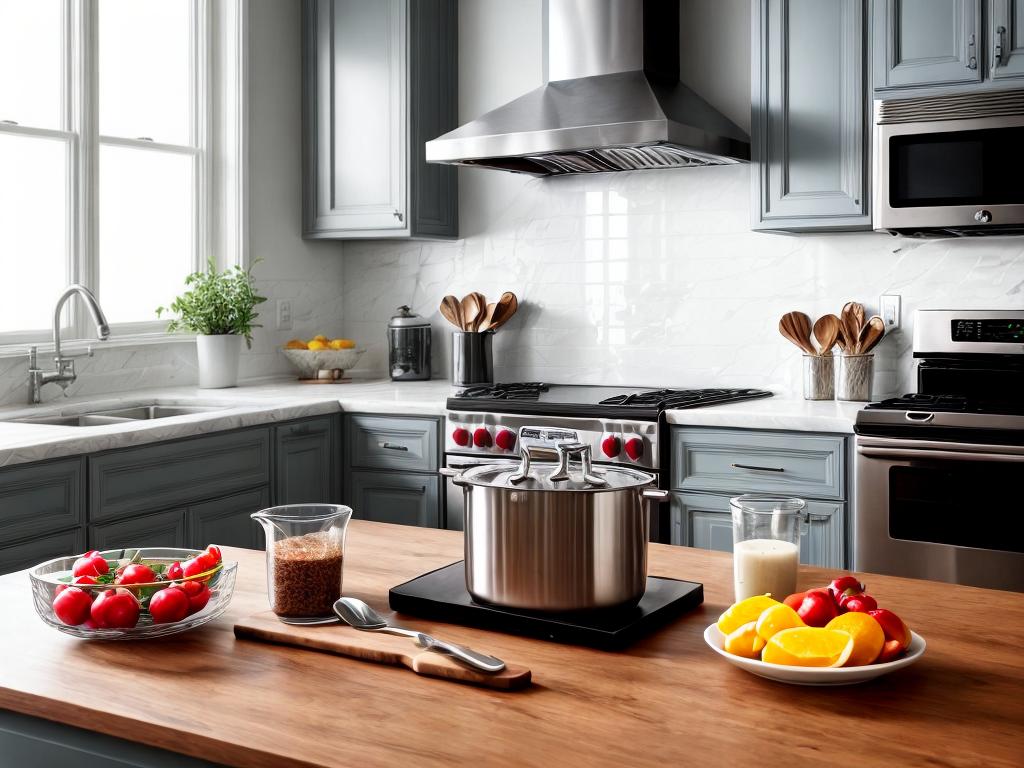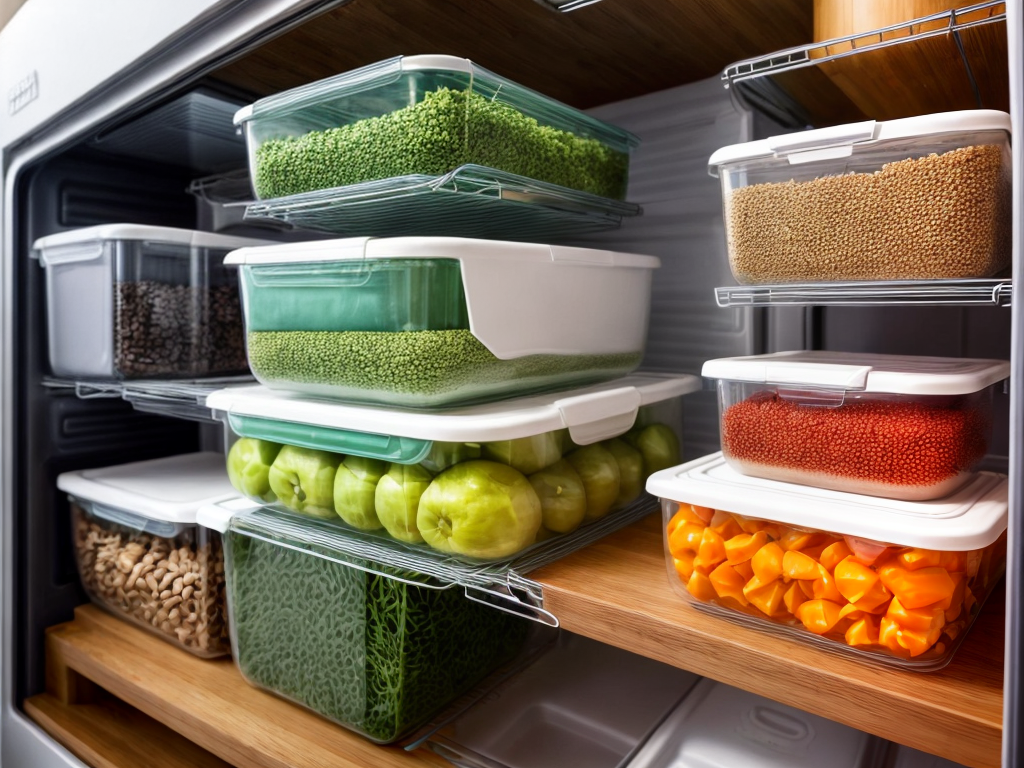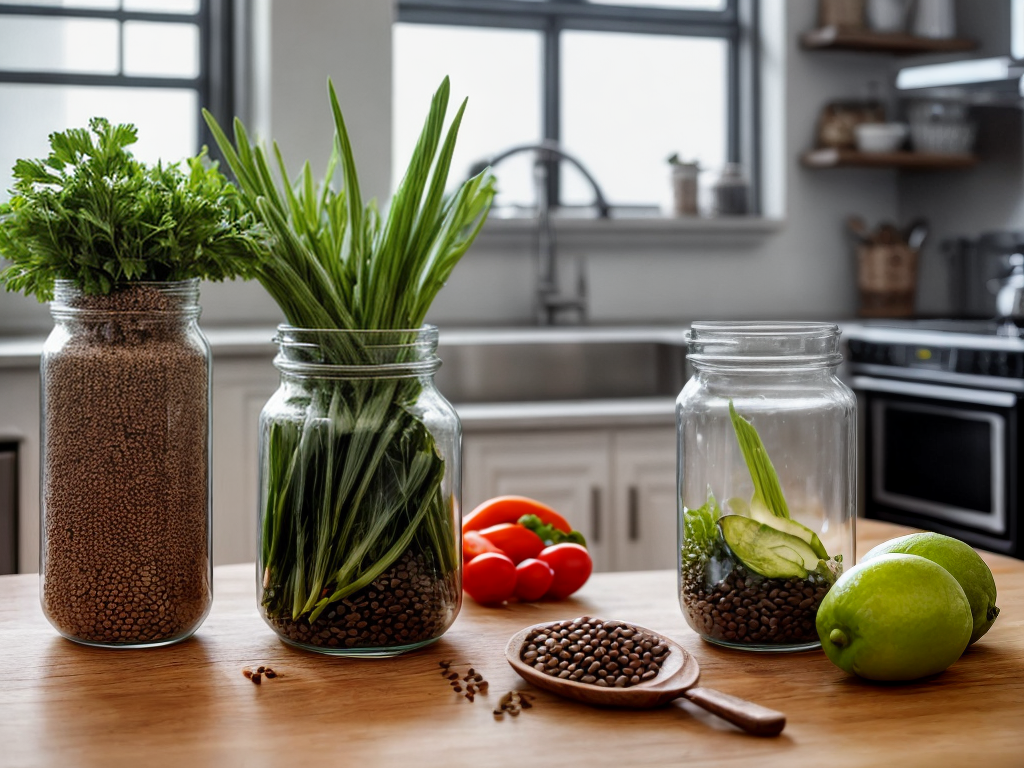
Oh, the joy of drowning in a sea of plastic in my kitchen! But fear not, for I have discovered some simple yet effective ways to reduce plastic use and save our planet, one forkful at a time. From assessing your plastic usage to embracing natural food storage alternatives, I will guide you through practical steps that will make a big difference. So, join me on this plastic-free journey and let’s transform our kitchens into eco-friendly havens. Together, we can create a cleaner, greener future that will leave you hungry for more.
Assess Your Plastic Usage
To reduce plastic use in your kitchen, it is important to assess your current plastic usage. By evaluating how much plastic waste you generate, you can identify areas where eco-friendly alternatives can be implemented. Start by examining your grocery shopping habits. Opt for products with minimal or no plastic packaging. Consider buying in bulk to reduce the amount of plastic waste generated from individual packaging. Additionally, bring your own reusable bags to the store to eliminate the need for plastic bags altogether.
Next, evaluate your food storage practices. Take inventory of your plastic containers and assess whether they can be replaced with eco-friendly alternatives. Look for options like glass or stainless steel containers, which are durable and reusable. These alternatives not only reduce plastic waste but also provide a safer and healthier option for storing food.
Furthermore, consider replacing single-use plastic items in your kitchen. Switch to reusable alternatives like cloth napkins instead of paper towels, or invest in reusable silicone food wraps instead of plastic cling wrap. These small changes can have a significant impact on reducing plastic waste in your kitchen.
Switch to Reusable Containers
Switching to reusable containers is a simple and effective way to reduce plastic waste in your kitchen. By opting for sustainable packaging and plastic-free storage solutions, you can make a significant impact on the amount of plastic that ends up in landfills and oceans.
Investing in reusable containers not only helps the environment but also saves you money in the long run. Instead of relying on single-use plastic bags or disposable containers, you can use durable and long-lasting options like glass or stainless steel containers. These materials are not only better for the planet but also provide a safer and healthier alternative to plastic, as they do not leach harmful chemicals into your food.
When choosing reusable containers, look for those made from sustainable materials such as bamboo or silicone. These options are biodegradable and have a minimal impact on the environment. Additionally, consider the size and shape of the containers to ensure they fit your specific needs and storage requirements.
Opt for Glass or Stainless Steel
When it comes to reducing plastic use in the kitchen, opting for glass or stainless steel containers is a smart choice. Glass containers are a great alternative to plastic because they are durable, non-toxic, and can be easily recycled. On the other hand, stainless steel containers are not only eco-friendly but also offer benefits like being lightweight, easy to clean, and resistant to stains and odors. By choosing these eco-friendly alternatives, we can minimize our reliance on plastic and contribute to a more sustainable future.
Glass Vs. Plastic Containers
Glass or stainless steel containers are a preferable alternative to plastic for storing food in your kitchen. Here are three reasons why:
- Eco-friendly: Glass containers are reusable and recyclable, making them a sustainable choice for a plastic-free kitchen. By opting for glass, you can significantly reduce your plastic waste and contribute to a healthier environment.
- Safe for food storage: Unlike plastic containers, glass does not leach harmful chemicals into your food. It is non-toxic and non-reactive, ensuring that your food remains fresh and uncontaminated. Glass also retains the flavors and aromas of your food, keeping it delicious.
- Durable and long-lasting: Glass containers are known for their durability and resistance to wear and tear. They can withstand high temperatures, making them suitable for both refrigeration and oven use. With proper care, glass containers can last for years, saving you money in the long run.
Benefits of Stainless Steel
Stainless steel containers offer numerous benefits for your kitchen, making them a great alternative to plastic or glass options. Not only are they durable and long-lasting, but they are also non-toxic and resistant to rust, stains, and odors. Here are some key advantages of using stainless steel kitchenware:
| Benefits | Description |
|---|---|
| Durability | Stainless steel containers are highly durable and can withstand heavy use without cracking or breaking. |
| Safety | Stainless steel is a safe material for food storage as it does not leach harmful chemicals into your food. |
| Easy to Clean | Stainless steel is non-porous, making it easy to clean and preventing bacteria buildup. |
| Environmentally Friendly | Stainless steel is a sustainable material that can be recycled, reducing waste and environmental impact. |
When choosing kitchenware, consider stainless steel as a reliable and eco-friendly option that will benefit both your health and the environment.
Choosing Eco-Friendly Alternatives
To make your kitchen more eco-friendly, consider opting for glass or stainless steel alternatives. These options not only reduce the use of plastic but also provide sustainable food storage solutions. Here are three eco-friendly kitchenware choices to consider:
-
Glass containers: Glass containers are not only reusable but also free from harmful chemicals. They are a great option for storing leftovers, meal prepping, and keeping pantry staples organized. Glass containers can be easily cleaned and are microwave and oven-safe, making them versatile for various cooking and reheating needs.
-
Stainless steel water bottles: Say goodbye to disposable plastic water bottles and switch to stainless steel ones. They are durable, BPA-free, and can be reused indefinitely. Stainless steel bottles also keep your beverages at the desired temperature, whether it’s hot or cold.
-
Stainless steel straws: Replace single-use plastic straws with stainless steel alternatives. These reusable straws are easy to clean, hygienic, and can be used over and over again. They are a small but impactful step towards reducing plastic waste.
Embrace Natural Food Storage Alternatives
When it comes to reducing plastic use in the kitchen, embracing natural food storage alternatives is a great step forward. Not only are these options eco-friendly, but they also provide sustainable food containers that can be reused over and over again. By opting for materials such as glass or stainless steel, we can reduce our reliance on plastic and promote a more sustainable lifestyle.
Eco-Friendly Storage Options
I have discovered some eco-friendly storage options that embrace natural food storage alternatives. These options not only help reduce plastic use in the kitchen but also promote sustainability and eco-consciousness. Here are three great alternatives to consider:
-
Glass containers: Glass containers are a fantastic option for storing food. They are reusable, easy to clean, and do not leach harmful chemicals into your food. Plus, they are transparent, making it easy to see what’s inside and reduce food waste.
-
Beeswax wraps: Beeswax wraps are a natural and reusable alternative to plastic wrap. Made from cotton fabric coated with beeswax, these wraps are great for covering bowls, wrapping sandwiches, or storing cheese. They can be washed and reused multiple times, reducing waste and contributing to a sustainable pantry.
-
Silicone food bags: Silicone food bags are a durable and eco-friendly replacement for single-use plastic bags. They are reusable, easy to clean, and can be used for storing both dry and wet ingredients. Silicone bags are a great option for eco-friendly meal prep and help reduce plastic waste in the kitchen.
Sustainable Food Containers
Glass containers, beeswax wraps, and silicone food bags are just a few examples of sustainable food containers that embrace natural food storage alternatives and help reduce plastic use in the kitchen. These sustainable packaging options are not only better for the environment, but they also offer a range of benefits for food storage. Glass containers are durable, non-toxic, and can be easily recycled. Beeswax wraps are made from organic cotton coated in beeswax and are perfect for wrapping sandwiches, fruits, and vegetables. Silicone food bags are reusable, leak-proof, and can be used for freezing and storing leftovers. By using these biodegradable containers, we can reduce our reliance on plastic and make a positive impact on the environment.
| Sustainable Food Containers | Benefits |
|---|---|
| Glass containers | Durable, non-toxic, |
| easily recycled | |
| Beeswax wraps | Organic cotton coated in |
| beeswax, perfect for | |
| wrapping food | |
| Silicone food bags | Reusable, leak-proof, |
| freezer-friendly |
Say No to Single-Use Plastics
To reduce plastic waste in your kitchen, it is important to say no to single-use plastics. These items are designed for one-time use and contribute significantly to the plastic pollution problem. Instead, consider the following alternatives to plastic:
-
Reusable containers: Invest in high-quality, durable containers made from glass, stainless steel, or silicone. These options are not only better for the environment but also safer for storing food.
-
Beeswax wraps: Replace plastic wrap with beeswax wraps, which are made from cotton fabric coated in beeswax. They are a sustainable and reusable alternative for covering bowls and wrapping food.
-
Stainless steel straws: Say goodbye to plastic straws and opt for stainless steel ones. They are easy to clean, durable, and can be used over and over again.
Choose Eco-Friendly Cleaning Products
Choosing eco-friendly cleaning products is a simple yet impactful way to reduce your kitchen’s environmental footprint. By opting for eco-friendly cleaning products, you can minimize the amount of plastic waste generated in your kitchen and contribute to a more sustainable lifestyle. There are numerous eco-friendly cleaning products available on the market today that are both effective and safe for the environment.
When choosing eco-friendly cleaning products, look for those that are labeled as biodegradable, non-toxic, and made from natural ingredients. These products are designed to break down easily and do not contribute to pollution or harm aquatic life. Additionally, consider using plastic-free cleaning alternatives, such as refillable glass spray bottles and reusable cleaning cloths made from organic materials like bamboo or cotton.
In addition to reducing plastic waste, eco-friendly cleaning products can also help improve indoor air quality. Traditional cleaning products often contain harsh chemicals and artificial fragrances that can be harmful to your health. Eco-friendly alternatives, on the other hand, are made from natural ingredients and do not release harmful toxins into the air.
Reduce Packaging Waste
Reducing packaging waste is an essential step in creating a more sustainable and eco-friendly kitchen. By minimizing the amount of packaging we use and choosing sustainable options, we can significantly reduce our environmental impact. Here are three ways to reduce packaging waste in your kitchen:
-
Buy in bulk: Purchasing items in bulk not only reduces the amount of packaging waste but also saves money in the long run. Look for stores that offer bulk bins for items like grains, pasta, nuts, and spices. Bring your own reusable bags or containers to eliminate the need for single-use packaging.
-
Choose products with minimal packaging: When shopping, opt for products that have minimal packaging or come in recyclable or compostable materials. Look for brands that prioritize sustainability and use materials like glass, paper, or cardboard instead of plastic.
-
Preserve food to reduce waste: Properly storing and preserving food can help minimize the need for single-use packaging. Invest in reusable containers, beeswax wraps, or silicone bags to keep food fresh for longer periods. Additionally, consider freezing leftovers or using them in creative ways to prevent food waste.
Spread the Word and Inspire Others
By spreading the word about reducing plastic use in our kitchens, we can inspire others to join the movement towards a more sustainable lifestyle. It is important to spread awareness about the detrimental effects of plastic on the environment and encourage change in our daily habits. One way to do this is by sharing information and tips on social media platforms, such as Facebook, Instagram, and Twitter. Posting pictures of plastic-free meals and using hashtags like #PlasticFreeKitchen or #SustainableLiving can help reach a wider audience and inspire others to make changes in their own kitchens.
Additionally, talking to friends, family, and colleagues about the importance of reducing plastic use can have a significant impact. By sharing personal experiences and explaining the benefits of using alternatives, such as reusable containers and bags, we can encourage others to adopt more sustainable practices. Organizing events, such as workshops or seminars, can also be effective in spreading awareness and educating others about the harmful effects of plastic on the environment.
Conclusion
In conclusion, reducing plastic use in your kitchen is not only beneficial for the environment but also for your health. By assessing your plastic usage, switching to reusable containers, opting for glass or stainless steel, embracing natural food storage alternatives, saying no to single-use plastics, choosing eco-friendly cleaning products, reducing packaging waste, and spreading the word, you can make a significant impact. Start making small changes today and inspire others to do the same.

